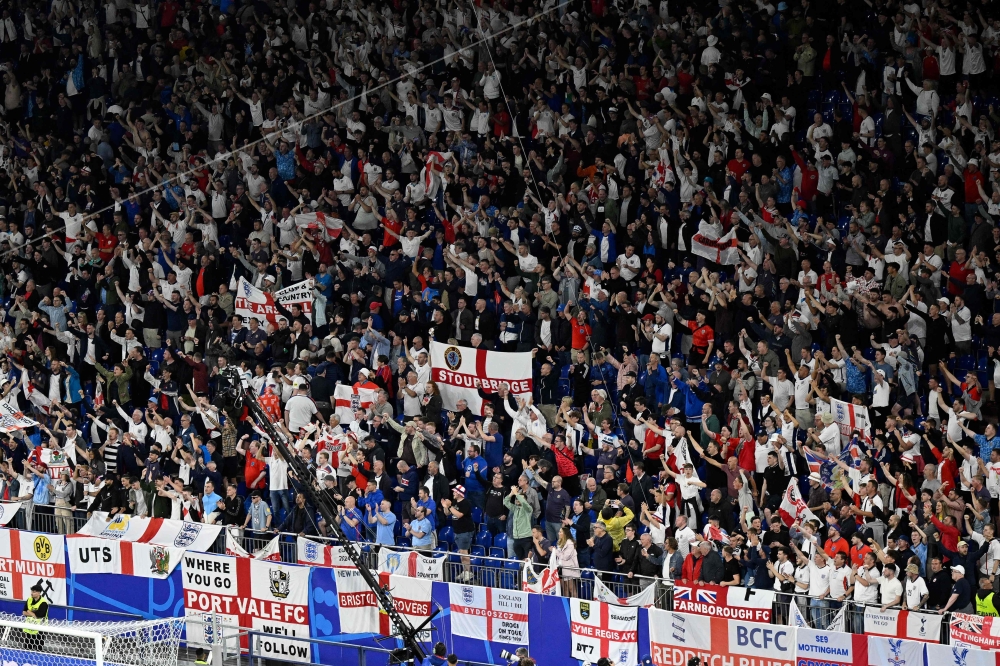The UEFA Euro 2024 Group C football match between Serbia and England saw England fans celebrating their victory at the Arena AufSchalke in Gelsenkirchen. However, with Ukraine playing their first European Championship game, UEFA has expressed concerns about Russian flags being displayed in the stadium. Russian teams were banned by UEFA from international competitions following the military invasion of Ukraine, but Russian citizens may still try to attend Euro 2024 games and display their national flag. This was evident in the matches in Munich where Russian flags were seen next to Scotland flags and among Serbia fans during their game against England.
In an effort to keep Russian flags out of the stadium, UEFA has stated that security staff will be on hand to intercept and remove any Russian flags being displayed during the Ukraine vs. Romania match. German authorities have also expressed their desire to only allow flags of the participating teams to be brought to stadiums and official fan zones. This measure is not only meant to prevent the display of Russian flags but also to avoid potential provocations, such as the display of Israeli and Palestinian flags, which could lead to disciplinary actions from UEFA.
The presence of Russian flags at Euro 2024 matches raises concerns about political messages being displayed at stadiums, as UEFA has strict disciplinary rules against such actions. The display of flags representing countries involved in political conflicts could lead to punishments for the teams whose fans are involved in such acts. UEFA’s main goal is to ensure that the focus remains on the football matches and that political tensions do not spill over into the stadiums.
The incident with Russian flags being displayed at Euro 2024 matches highlights the challenges faced by UEFA in maintaining a safe and inclusive environment for all teams and fans. The ban on Russian teams from international competitions has not prevented the display of their national flag by some citizens, leading to concerns about potential disruptions. As the tournament progresses, UEFA will continue to monitor the situation closely and take necessary actions to prevent any political messages from overshadowing the sporting events.
The presence of Russian flags at Euro 2024 matches not only goes against UEFA’s regulations but also undermines the spirit of fair play and sportsmanship that the organization promotes. By allowing flags of only the participating teams to be displayed, UEFA aims to create a welcoming and peaceful atmosphere for all fans. The display of political symbols, such as Russian flags, can detract from the enjoyment of the game and create unnecessary tensions among fans.
In conclusion, the issue of Russian flags being displayed at Euro 2024 matches underscores the importance of maintaining a neutral and respectful environment in sports. UEFA’s efforts to keep political messages out of stadiums are crucial in ensuring that football remains a unifying force that brings people together. By enforcing strict disciplinary measures against such actions, UEFA sends a clear message that the focus should be on the game itself, not on political conflicts. As the tournament progresses, UEFA will continue to uphold its standards of fair play and sportsmanship, making sure that all fans can enjoy the matches in a safe and welcoming environment.



























